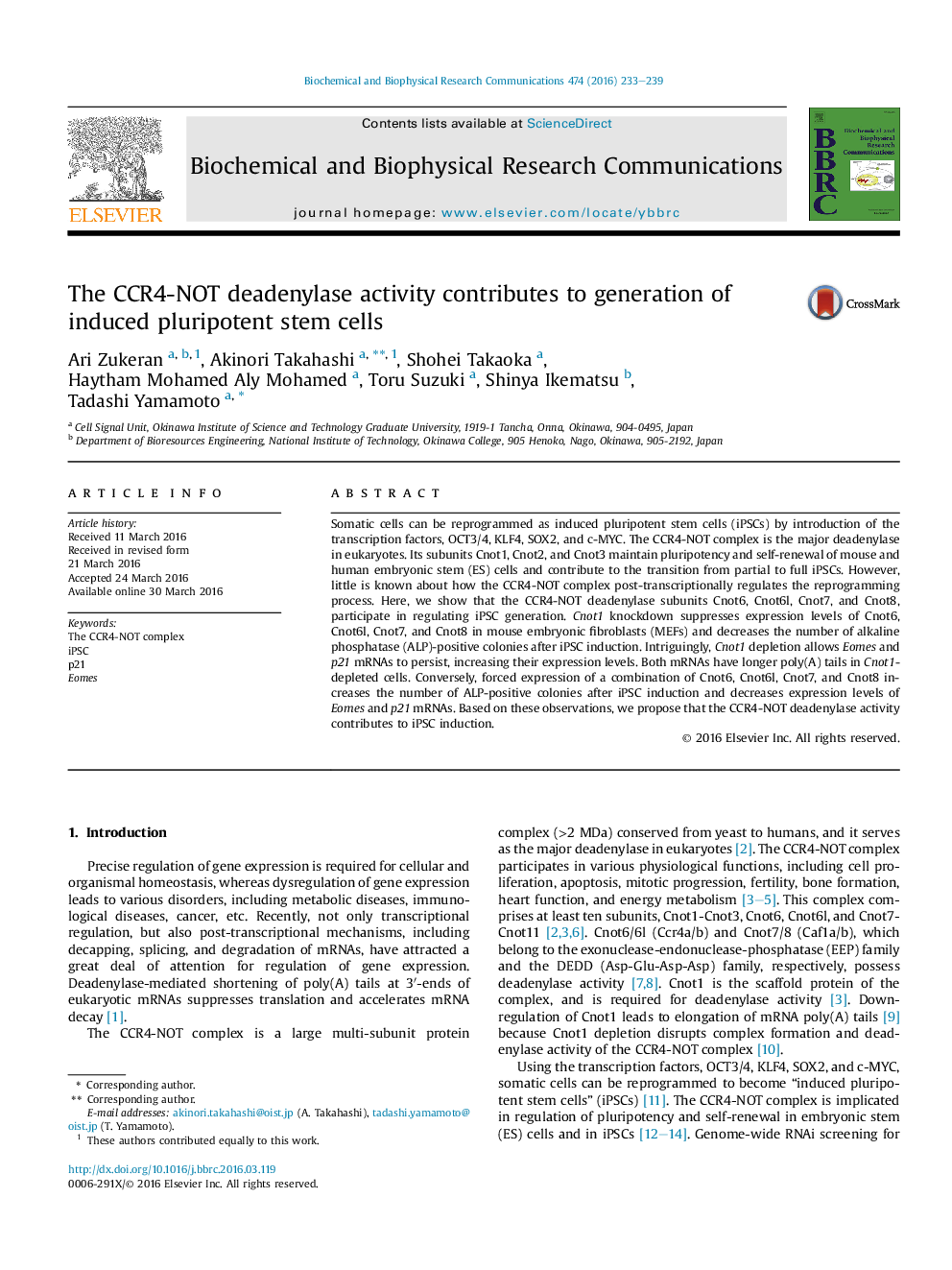| کد مقاله | کد نشریه | سال انتشار | مقاله انگلیسی | نسخه تمام متن |
|---|---|---|---|---|
| 10748252 | 1050269 | 2016 | 7 صفحه PDF | دانلود رایگان |
عنوان انگلیسی مقاله ISI
The CCR4-NOT deadenylase activity contributes to generation of induced pluripotent stem cells
دانلود مقاله + سفارش ترجمه
دانلود مقاله ISI انگلیسی
رایگان برای ایرانیان
کلمات کلیدی
موضوعات مرتبط
علوم زیستی و بیوفناوری
بیوشیمی، ژنتیک و زیست شناسی مولکولی
زیست شیمی
پیش نمایش صفحه اول مقاله

چکیده انگلیسی
Somatic cells can be reprogrammed as induced pluripotent stem cells (iPSCs) by introduction of the transcription factors, OCT3/4, KLF4, SOX2, and c-MYC. The CCR4-NOT complex is the major deadenylase in eukaryotes. Its subunits Cnot1, Cnot2, and Cnot3 maintain pluripotency and self-renewal of mouse and human embryonic stem (ES) cells and contribute to the transition from partial to full iPSCs. However, little is known about how the CCR4-NOT complex post-transcriptionally regulates the reprogramming process. Here, we show that the CCR4-NOT deadenylase subunits Cnot6, Cnot6l, Cnot7, and Cnot8, participate in regulating iPSC generation. Cnot1 knockdown suppresses expression levels of Cnot6, Cnot6l, Cnot7, and Cnot8 in mouse embryonic fibroblasts (MEFs) and decreases the number of alkaline phosphatase (ALP)-positive colonies after iPSC induction. Intriguingly, Cnot1 depletion allows Eomes and p21 mRNAs to persist, increasing their expression levels. Both mRNAs have longer poly(A) tails in Cnot1-depleted cells. Conversely, forced expression of a combination of Cnot6, Cnot6l, Cnot7, and Cnot8 increases the number of ALP-positive colonies after iPSC induction and decreases expression levels of Eomes and p21 mRNAs. Based on these observations, we propose that the CCR4-NOT deadenylase activity contributes to iPSC induction.
ناشر
Database: Elsevier - ScienceDirect (ساینس دایرکت)
Journal: Biochemical and Biophysical Research Communications - Volume 474, Issue 2, 27 May 2016, Pages 233-239
Journal: Biochemical and Biophysical Research Communications - Volume 474, Issue 2, 27 May 2016, Pages 233-239
نویسندگان
Ari Zukeran, Akinori Takahashi, Shohei Takaoka, Haytham Mohamed Aly Mohamed, Toru Suzuki, Shinya Ikematsu, Tadashi Yamamoto,